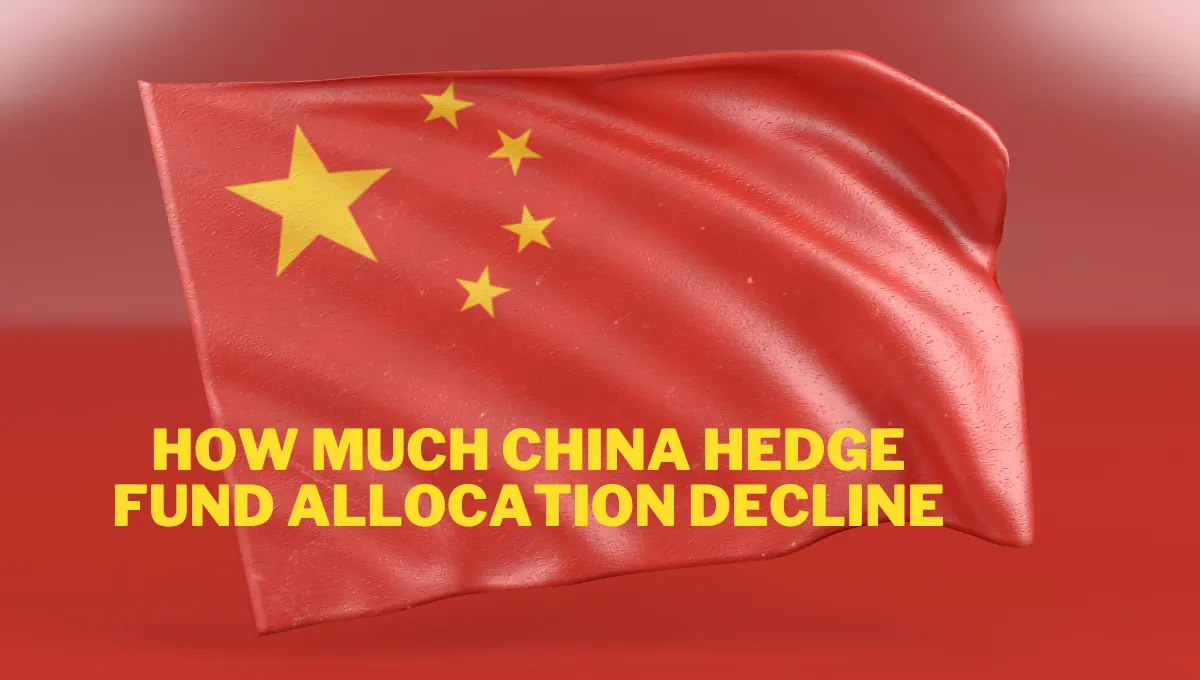In recent months, global hedge funds have significantly reduced their exposure to Chinese equities, reaching the lowest levels seen in five years.
This trend coincides with a notable increase in investments in Japan, highlighting a shift in investor sentiment and strategy.
According to a report from Goldman Sachs, this move reflects growing concerns about China’s economic outlook, which has been marked by a series of disappointing policy measures and economic data.
Investor Concerns Over China’s Economy
The decrease in hedge fund allocations to China underscores a broader sense of unease among investors regarding the country’s economic prospects.
Chinese stock markets have seen limited movement this year, with initial optimism fading as the expected economic recovery failed to materialize.
The lack of effective policy interventions to stimulate growth has left many investors wary.
Goldman Sachs‘ prime services team reported that the most significant selling activity in emerging market stocks in recent months has been concentrated in Chinese assets.
This trend is evident in both mainland A-shares and other Chinese equities, leading to a notable reduction in hedge fund exposure to the region.
In stark contrast, hedge fund allocations to Japanese markets have surged, reaching levels not seen in four years.
Divergence in Hedge Fund Strategies
The divergence in hedge fund allocations between China and Japan is becoming increasingly pronounced.
While China’s economic outlook is clouded by deflationary pressures and uncertain policy directions, Japan is emerging as a more attractive investment destination.
The Japanese market has benefitted from the Bank of Japan’s more favorable monetary policies and a broader economic recovery.
Japan’s Nikkei index has risen by 17% so far this year, reflecting growing investor confidence in the country’s economic prospects.
This stands in stark contrast to China, where the economy grew by just 4.7% in the second quarter, the slowest pace since early 2023.
Despite recent surprise rate cuts and policy announcements from China’s leadership, concerns about weak domestic demand and overall market sentiment remain prevalent.
Challenges Facing China’s Economic Recovery
One of the key issues facing China’s economy is the lack of clarity on the recovery trajectory. The country’s recent policy measures, including rate cuts, have not been sufficient to instill confidence among investors.
Many are waiting for more concrete signs of a sustained recovery before considering reinvestment in Chinese assets.
Patrick Ghali, managing partner at hedge fund advisory firm Sussex Partners, noted that many investors are hesitant to commit to China until there is a clearer picture of the domestic economic recovery and the potential implications of U.S. policies towards China, particularly in light of upcoming elections.
This uncertainty has led to a cautious approach, with many opting to reduce their exposure to Chinese equities.
Shift in Hedge Fund Allocations
At the end of July, hedge funds globally had approximately 6.6% of their portfolios allocated to Chinese equities, down from a peak of 15% in mid-2020, according to Goldman Sachs.
This significant reduction highlights the scale of the retreat from Chinese markets over the past few years.
Meanwhile, hedge funds with a focus on China, particularly long-short equity funds, have experienced a challenging period. By July 29, China-focused funds had suffered an average loss of 5.8%, making it one of the toughest months in over two years.
In comparison, broader pan-Asia long-short equity funds recorded a 3.5% decline, while Japanese-focused funds saw a modest gain of 1.2%.
Conclusion
The recent decline in hedge fund allocations to China reflects a broader trend of investor caution and skepticism toward the country’s economic outlook.
With deflationary pressures and unclear policy directions, China faces significant challenges in restoring investor confidence.
Meanwhile, Japan’s improving economic conditions and favorable market dynamics are attracting increased attention from global hedge funds.
As the global economic landscape continues to evolve, investors will closely monitor developments in both China and Japan.
The divergence in hedge fund strategies highlights the importance of assessing regional economic trends and policy environments in making informed investment decisions.
For now, the shift away from Chinese equities and towards Japanese markets marks a notable trend in the global investment landscape.










